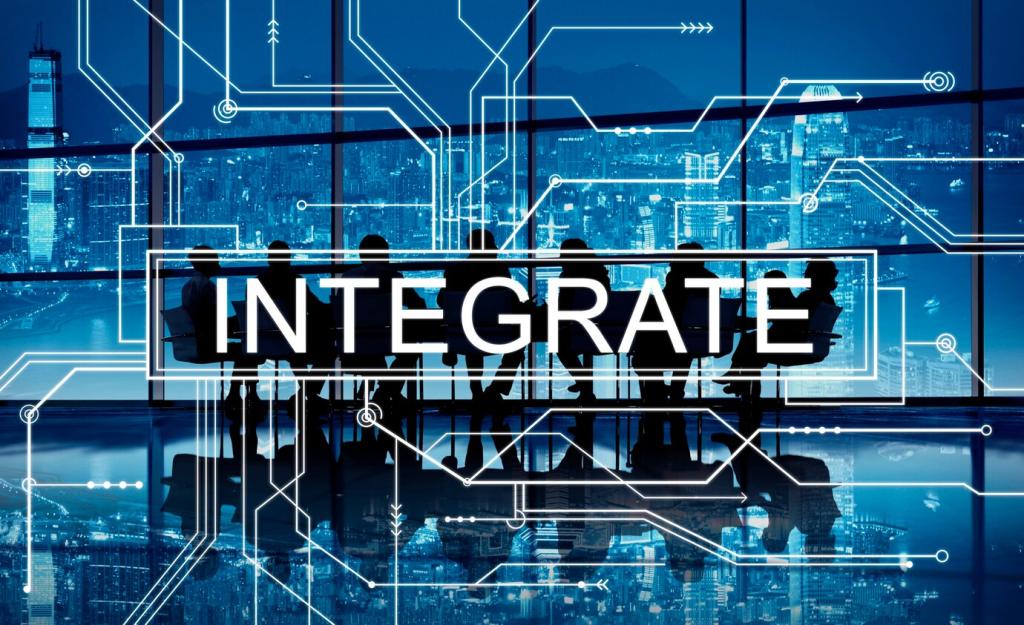Blockchain and the Future of Secure IT Jobs
Blockchain is revolutionizing the landscape of digital security and data integrity across various industries. As a decentralized and tamper-proof ledger system, blockchain is rapidly gaining traction, pushing organizations to rethink how they approach security and information management. This new paradigm directly impacts the job market for IT professionals, creating unique opportunities and challenges in safeguarding digital assets. Understanding how blockchain shapes the future of secure IT jobs is critical for both aspiring and seasoned professionals aiming to thrive in this evolving environment.

Emerging Blockchain Technologies and Their Impact on IT Security Careers

Blockchain introduces a new approach to cybersecurity by providing a transparent and immutable record of transactions. Unlike centralized databases, blockchains are less vulnerable to single points of failure and traditional hacking techniques. This shift necessitates IT security professionals to develop expertise in blockchain architecture and consensus mechanisms. As attack vectors change, experts must adapt their methodologies, focusing on securing cryptographic keys and evaluating the integrity of smart contracts. The result is a significant transformation in the daily operations of cybersecurity specialists, requiring constant learning and adaptation.
Skills and Qualifications for Blockchain-Focused IT Security Roles
Mastery of Cryptography and Distributed Ledgers
Modern blockchain platforms rely heavily on advanced cryptographic methods to verify transactions and secure digital assets. IT security roles now demand a detailed knowledge of cryptographic algorithms, public and private keys, and hash functions. Mastery of these concepts allows professionals to design secure solutions, ensuring the integrity and authenticity of blockchain transactions. Furthermore, understanding distributed ledger operations, from consensus mechanisms to peer-to-peer networking, equips IT professionals with the tools needed for the next generation of digital defense.
Proficiency in Smart Contract Development and Audit
Smart contracts automate transactions on many blockchains and are particularly susceptible to security vulnerabilities if poorly coded. IT security specialists must be proficient in programming languages like Solidity or Rust, which are used to write these contracts. Beyond development, these professionals need strong analytical skills to audit smart contracts and identify potential exploits. This dual capability—both building and reviewing code for flaws—makes IT security professionals indispensable in organizations embracing blockchain solutions.
Interdisciplinary Knowledge and Communication Skills
Blockchain security does not exist in a vacuum. Future IT job roles require an interdisciplinary approach, combining deep technical expertise with a keen understanding of business processes and legal considerations. Communicating complex blockchain security concepts to non-technical stakeholders is increasingly important, as decisions made at the organizational level often rely on accurate but accessible information. Effective collaboration and the ability to translate technical risks into business impacts define standout professionals in this evolving landscape.

Challenges and Risks in Blockchain-Enabled Security Careers
Despite its robust security features, blockchain technology faces unique threats such as 51% attacks, double-spending, and vulnerabilities within consensus protocols. IT security professionals are challenged by the constant need to monitor these evolving threats and implement preemptive mitigation strategies. The decentralized nature of blockchain also means that breaches can be devastating and irreversible. Professionals who understand these specialized risks and can respond effectively become invaluable assets in organizations where digital assets are at stake.

